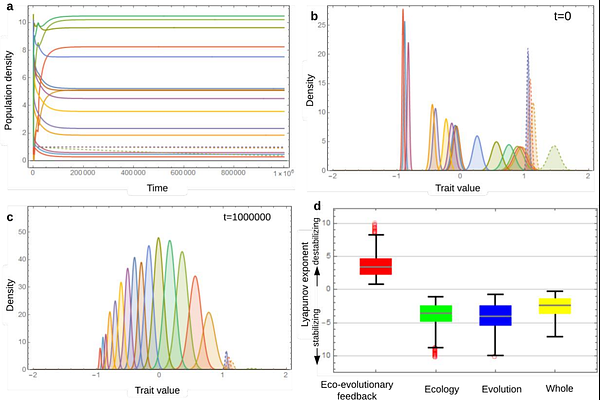Destabilizing effects of eco-evolutionary feedback on community stability and the role of climate change

Destabilizing effects of eco-evolutionary feedback on community stability and the role of climate change
Zhao, Q.; De Laender, F.; Barabas, G.
AbstractWhat underpins the stability of natural systems is a central topic in ecology for decades. Evidence from simple communities with few species shows that eco-evolutionary feedback has the potential to stabilize community dynamics. Here, we show that these findings may not hold in more complex natural systems with many species. We first simulated an eco-evolutionary model of producer-herbivores dynamics, and found destabilizing, rather than stabilizing effect of the eco-evolutionary feedback (i.e. an increasing Lyapunov exponent). We then analyzed 11 long term monitoring data sets of natural aquatic communities, containing the temporal dynamics of a key individual-level trait (body mass) and of population densities. This analysis matched the model results and further showed that warming tends to make eco-evolutionary feedback even more destabilizing. Our results indicate that eco-evolutionary feedback may play a role in destabilizing community dynamics and the climate may mediate the magnitude.